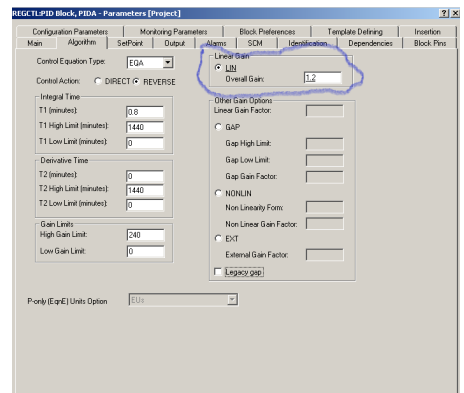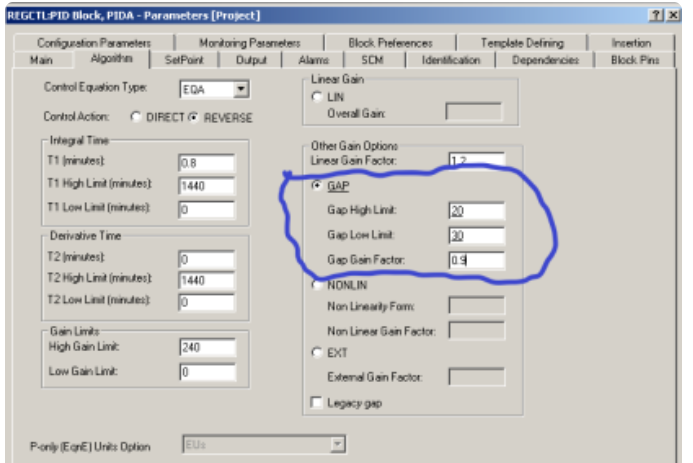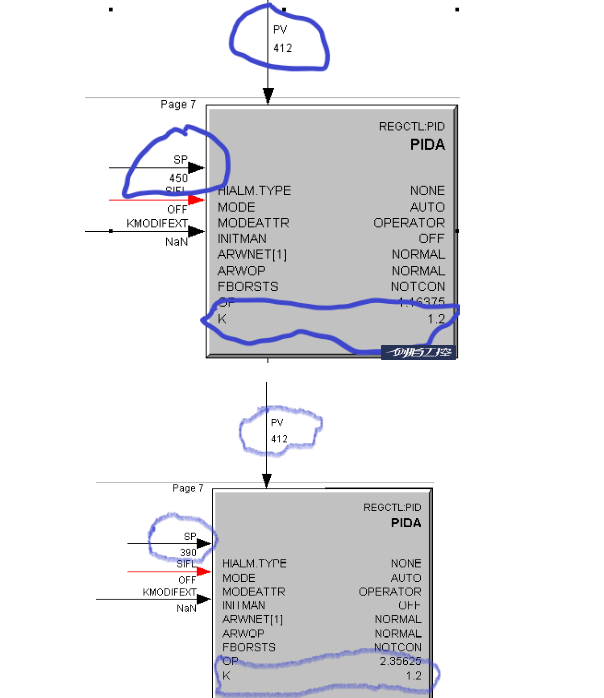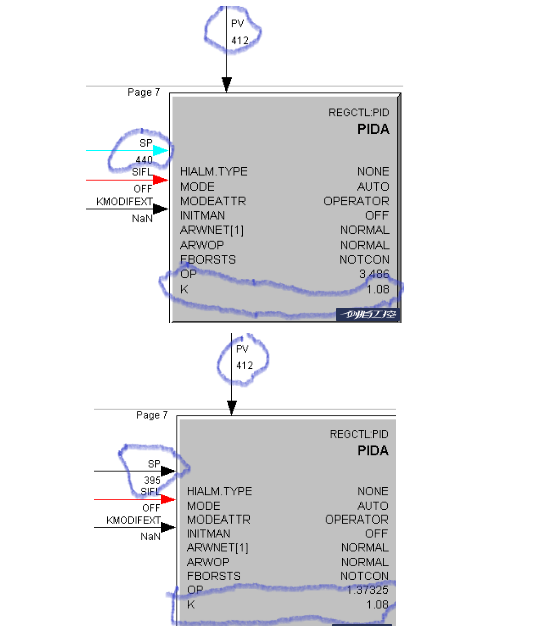PID loop is the most commonly used control scheme in process control. In the conventional PID loop, the coefficient K value of the proportional part (P) is fixed, and its default value is 1, which can be changed by the user as required. For example, the following PID loop has a value of K set to 1.2

PKS system provides several wisdom proportion scheme, that is, K value can be adjusted according to different situations, as shown in the following figure for the GAP type of proportion scheme, the use of this proportion scheme has 4 parameters to set, the legend they are set as:
● Linear Gain Factor: 1.2
● Gap High Limit: 20
● Gap Low Limit: 30
● Gap Gain Factor: 0.9

The general idea of GAP ratio scheme is that when the difference between PV value and SP value is relatively large, K value is equal to the set value of Linear Gain Factor parameter, namely 1.2. When the difference between PV value and SP value is small, K value is equal to Linear Gain Factor times Gap Gain Factor, that is, 1.2*0.9=1.08, resulting in a changing value of K.
How do you decide whether the difference between PV and SP is large or small? Users can set the Gap High Limit and Gap Low Limit parameters. When (PV-SP)> Gap High Limit or (SP-PV)> Gap Low Limit, the difference is large.
According to the above set values, we can draw the following conclusions:
When (sp-PV)>30 or (PV-sp)>20, K=1.2. See the PV, SP, and K values in the following two figures for these two cases

Otherwise, the difference between PV value and SP value is small, K=1.2*0.9=1.08. See PV, SP and K values in the following two figures for these two situations

Note: Only when the PID loop is automatically controlled, the K value will adjust itself according to the situation.